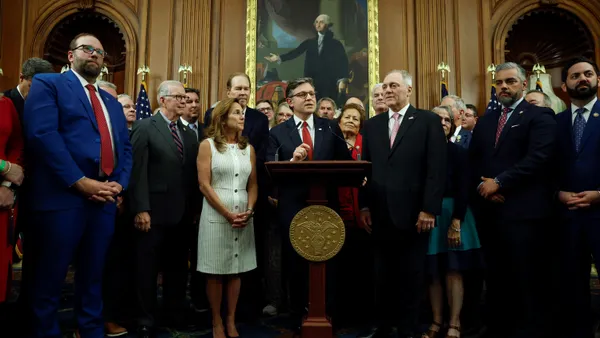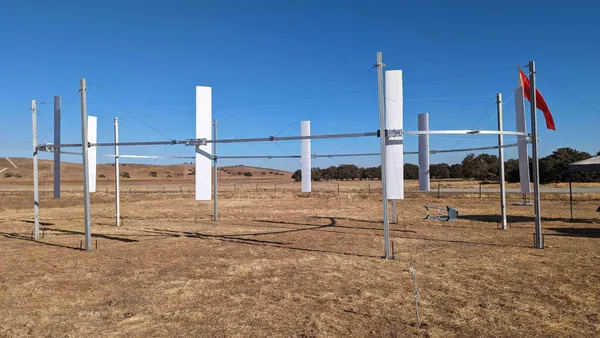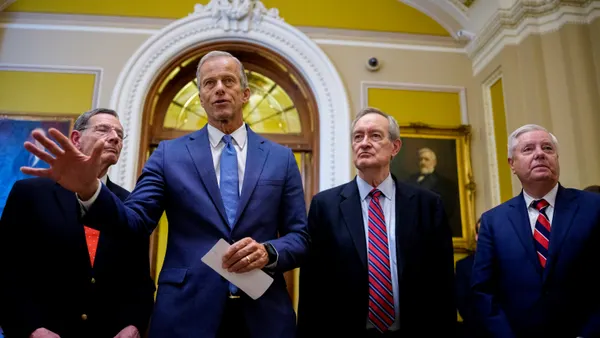Dive Brief:
- The Michigan Public Service Commission on Wednesday approved a residential distributed generation billing mechanism designed to replace retail rate net metering, though some customers will be grandfathered in for up to 10 years.
- A 2016 law called for a study of net metering, and the PSC convened seven workgroup meetings in developing the mechanism. Utilities will begin including the new distributed generation tariff in rate cases filed after June 1, though they may also file their own.
- At least one lawmaker opposed the new tariff. Rep. Tom Barrett (R), chair of the House Agriculture Committee, said the PSC had overstepped and went "beyond what the legislative directive was in the 2016 energy bill."
Dive Insight:
Customers whose solar systems are already net metered will be grandfathered in for a decade, but opponents of the new tariffs say it will create business uncertainty and takes control of energy use away from farmers and residential customers.
Under the new tariff, energy purchased by a customer will be bought at the full retail rate. Excess energy will be credited at the utility’s avoided cost, as a dollar credit or kilowatt-hour credit in the subsequent billing period, and will vary among utilities.
The head of the Michigan Energy Innovation Business Council spoke out against the decision, telling Energy News Network the new tariff is "complicated, unfair and costly to the industry."
Rep. Barret said he has heard from the agricultural community about the state's high cost of energy and how net metering can mitigate that. The state lawmaker said in a statement he was "disappointed" by the PSC's decision.
“This short-sighted decision is beyond what the legislative directive was in the 2016 energy bill, which sought to ensure that rooftop solar users were covering their grid costs," Barrett said. He also said the PSC's research found net-metered rooftop solar customers "actually provide an overall benefit to all ratepayers.
"This decision is not only out of line with our neighboring states, but it is also going to be devastating for our residential home owners and rural farmers," he said.
Michigan Gov. Rick Snyder in 2016 signed legislation to overhaul the state's energy sector, which also raised the state's renewable energy goal to 15% by 2021. PSC staff began studying the net metering issue in March of last year, indicating that a new distributed generation tariff would be a continuation of the state's net metering program until the completion of 2018 rate cases approving a new tariff.














